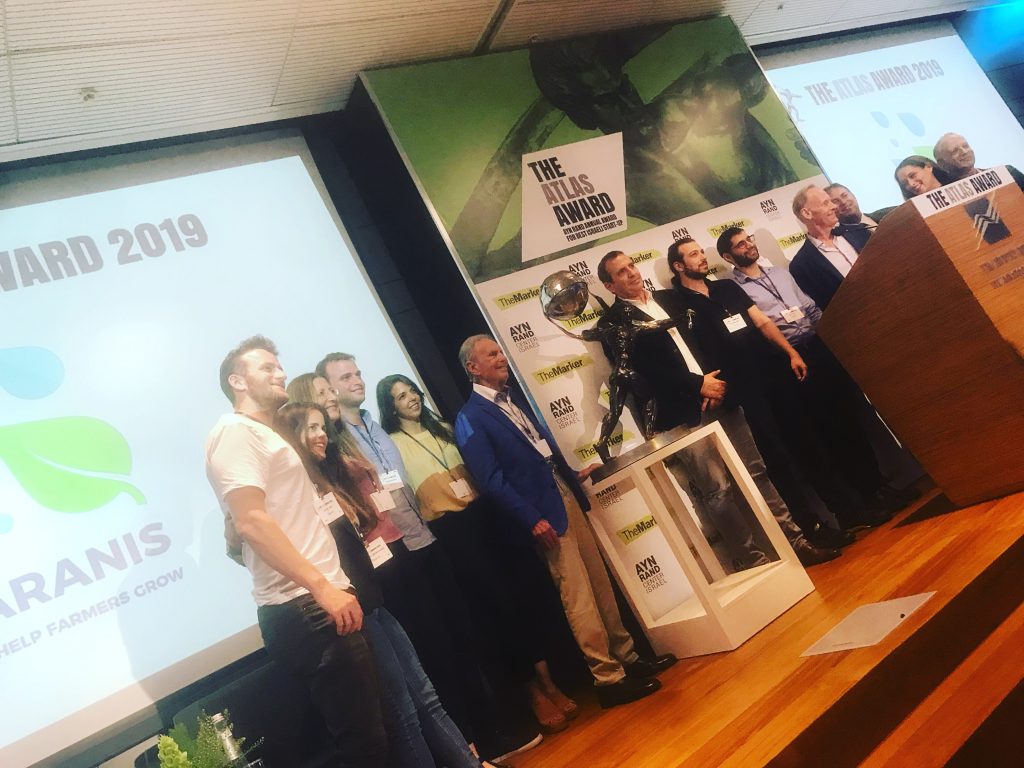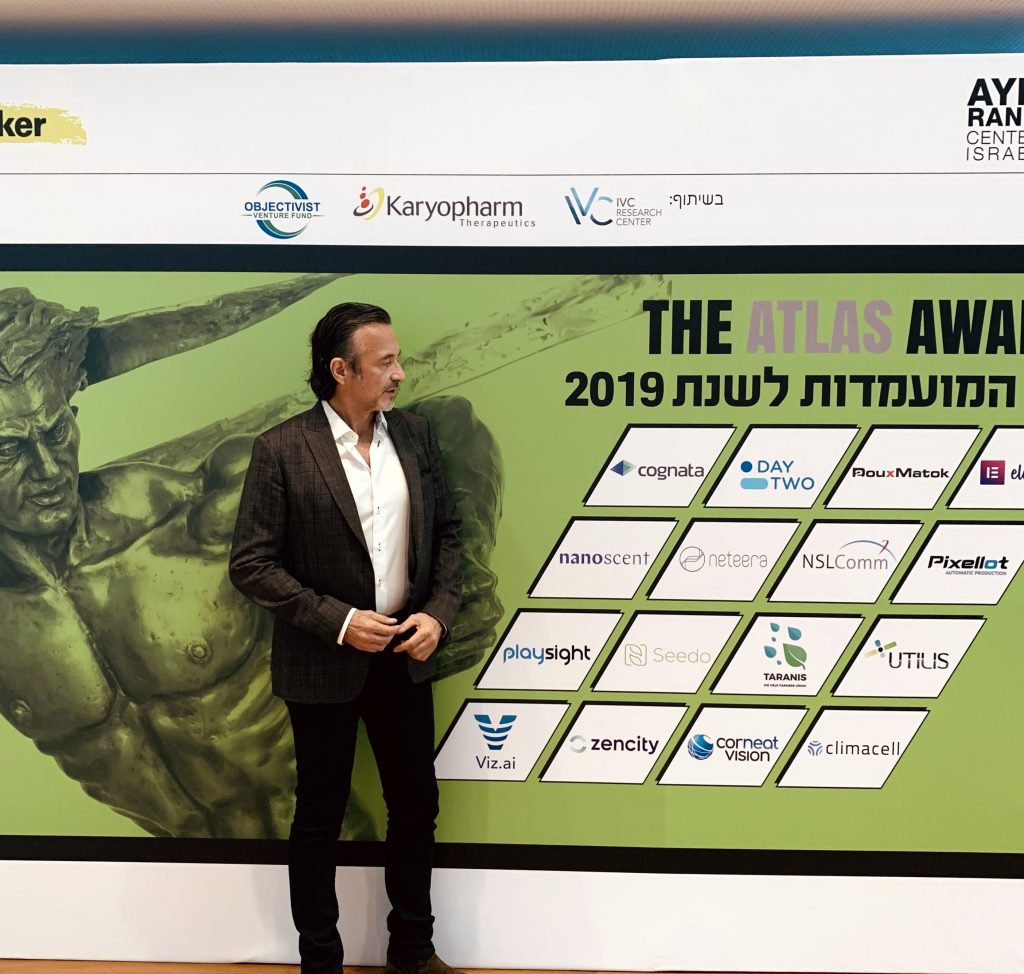This year, Atlas Awards, the preeminent competition for established Israeli technology start-ups showcases a rapidly maturing marketplace for leading and exciting innovations that will make life better for all of us.

On May 28, 2019 at the Tel Aviv Stock Exchange, Eyal Waldman, the founder and CEO of Mellanox which was sold to Nvidia in March for US$ 6.9B, was about to open the envelop that contained the name of the winner of the 2019 Atlas Awards for best Israeli startup. This concluded a month-long process involving 8 members of the Selection Committee who screened and graded over 50 tech startup companies with an overall winner and winners of each of five streams – Ag-tech, Med-tech, Aviation & Space, AR-VR and Social Media. These startups had to be at least two years old, solvent, and able to demonstrate innovation, execution and clearly identifiable market potentials.

Finally, the winner of the 2019 Atlas Awards was revealed; it was Taranis, a precision agricultural technology company that offers a full stack solution for high precision aerial surveillance imagery to preemptively avert crop yield loss due to insects, crop disease, weeds, and nutrient deficiencies. Through its patented “air scouting” capability using AI deep learning technology, Taranis helps farmers and landowners monitor their fields, identify crop health issues and make informed decisions to act on them. The ultimate goal is phenomenally important: avoid overusing pesticides. Today, Taranis already oversees millions of hectares of farmlands from South America to Ukraine and of course Israel.
Taranis is an example of an Israeli tech start-up that is making a difference to the environment and to humanity. Other entrants had similar features, especially in the Aviation & Space, Agri-tech and Med-tech streams. For example, Utilis developed a technology able to detect underground water leakages before they cause damage over ground by using synthetic aperture radar (SAR) data from satellites. Bahrain and some European countries and cities are already clients of Utilis whose mission is clear: advance planet Earth’s resource resilience through SAR analytics.
Med-tech was the stream that received the highest number of entries. The quality and the potential of the innovations presented by these new technologies was significant: they ranged from a portable single point of care colposcopy technology able to scan the cervix and send the data to medical centers to more quickly detect cervical cancer, to identifying a person’s gut microbiome in order to lower and manage blood sugar levels through algorithm based diet suited to the person’s microbiome characteristics, to a company that created revolutionary corneal implants using nanoscale chemical engineering to allow corneal blindness patients to regain their sight. The winner of the med-tech stream, Viz.ai, uses AI to synchronize stroke detection and care enabling medical teams to detect large vessel occlusion strokes within minutes instead of hours and thus cut the lead time for stroke treatment decisions.
The social media stream was not short of ground-breaking technologies. A company developed a data-driven decision-making system using AI for local governments to respond in a more timely and targeted manner to their residents. Pixellot, the winner of the social media stream, is a leader in automated sports production using unmanned multi-camera system in a fixed single rig and advanced auto-production algorithms tracking the flow of play, identify highlights, create replays and insert ads without human intervention. Users range from parents watching their children performing in a soccer game at school to famous sport teams using Pixellot as a tool to optimize their play.
Last year’s winner, Innoviz Technologies, was in the AR-VR space specializing in LiDAR sensors and perception software that are necessary for the production of autonomous vehicles. The company has been incredibly successful with European car manufacturers and is now expanding to China. This year, the winner of the AR-VR stream was another company involved in self-driving car space, having developed a technology to help autonomous car makers with a patented computer vision and deep learning algorithms to generate a whole city simulator thus shaving off the lead time and budget needed to bring an autonomous car to the market.
Founded by entrepreneur extraordinaire and internationally renowned sculptor Richard Minns 4 years ago and sponsored by The Ayn Rand Center in Israel, the Atlas Awards have now become the “Oscars” for high tech Israeli start ups.
People like Aart de Geus, the CEO of Synopsys, mentioned in an interview in Forbes magazine in 2018 that Israel was no longer the StartUp Nation. Instead, he said, Israel was an industrial powerhouse with several entrepreneurs and venture capital funds.
He may be right; but the candidates in this year’s Atlas Awards definitely reinforced Israel’s position as the preeminent High-Tech StartUp Nation of the World.
For further reading: https://www.forbes.com/sites/startupnationcentral/2018/05/14/israeli-techs-identity-crisis-startup-nation-or-scale-up-nation/#5dd49e4aef48
- The Perfect Storm Confronting Xi Jinping
- Albanian Electiongate: Wiretaps Show Collusion Between Soros-Linked Socialist Leaders and Crime Bosses


